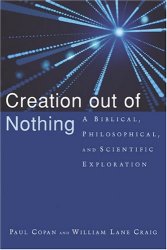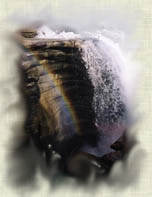

Book Review
Creation out of nothing
Paul Copan and William Lane Craig
Apollos, 2004, ISBN 1-84474-038-2.
Whilst the doctrine of “Creation out of nothing” has been held by Jews and Christians over the generations, there have always been teachers with opposing views. Today, there are numerous influential voices denying that the Universe was created and that it had a beginning. More significantly, some Christian scholars are promoting reinterpretations of the Bible that are significant departures from traditional teachings. Whilst they avoid conflict with a culture that rejects an original creation and the hand of God in history, they sacrifice much that is precious.
Two Christian philosophers, Paul Copan and William Lane Craig, have put together a book of great scholarship, addressing biblical, historical, philosophical and scientific aspects of the subject. The result is a major contribution that combines clarity, rigour and originality.
The authors consider relevant Old Testament and New Testament scriptures, concluding that the doctrine of “creation out of nothing” is plain, unambiguous and foundational. It is presented as an important doctrine because it underpins everything else the Bible has to say about God and his creation.
As part of this analysis, there is a superb section on the Near Eastern context for the early chapters of Genesis. So many scholars today seem to think that the Genesis account is a monotheistic reworking of Babylonian creation myths. For me, Copan and Craig's treatment is alone worth the price of the book! Equally valuable is their analysis of the teachings of Early Church leaders. These men are portrayed as bold witness-bearers to Biblical truth in a culture that utterly rejected it.
A significant part of the book (3 chapters out of 8) draws on the authors' philosophical expertise. The concluding summaries provide helpful and concise overviews of the specialist issues being addressed. For example, the argument of Chapter 4 is that “creation” and “conservation” are distinct biblical and philosophical concepts, and they are not to be conflated (as is being done by many scholars).
If anyone thinks cosmologists stand outside theology and metaphysics, let them read the final two chapters! Cosmological thinking over the past century is incisively reviewed and it is abundantly clear that religious convictions (often atheistic) have never been far from their thinking. People have struggled with the Big Bang theory, seeking to evade the inference of an initial creation. Much of the interest in alternatives (whether the Steady State Theory, cyclical cosmologies and the “Many Worlds” hypothesis) has been motivated by a desire to exclude God from consideration as Creator. Copan and Craig show that two lines of scientific evidences point to a definite beginning. These are the expansion of the Universe and the thermodynamics of the Universe (“entropy is increasing”). These two evidences are discussed in the context of the Big Bang theory of origins.
There is so much edifying material in this book that it seems inappropriate to draw attention to niggles. Suffice it to say that this book, like all others, should be read to stimulate and inform, but not to be a substitute for using our own critical faculties.
“Creation out of nothing” is a biblical teaching that confronts a pervasive spiritual blindness in our own culture. We need to know the doctrine and we need to be able to handle it well in our witness to others. This book will help us do that. Although it is demanding on its readers, it deserves to be widely read – and don't forget to give copies to any Christian young people with an interest in cosmology!
David J. Tyler
This review appeared in the January 2005 issue of Evangelicals Now http://www.e-n.org.uk/ , and is used with permission.

